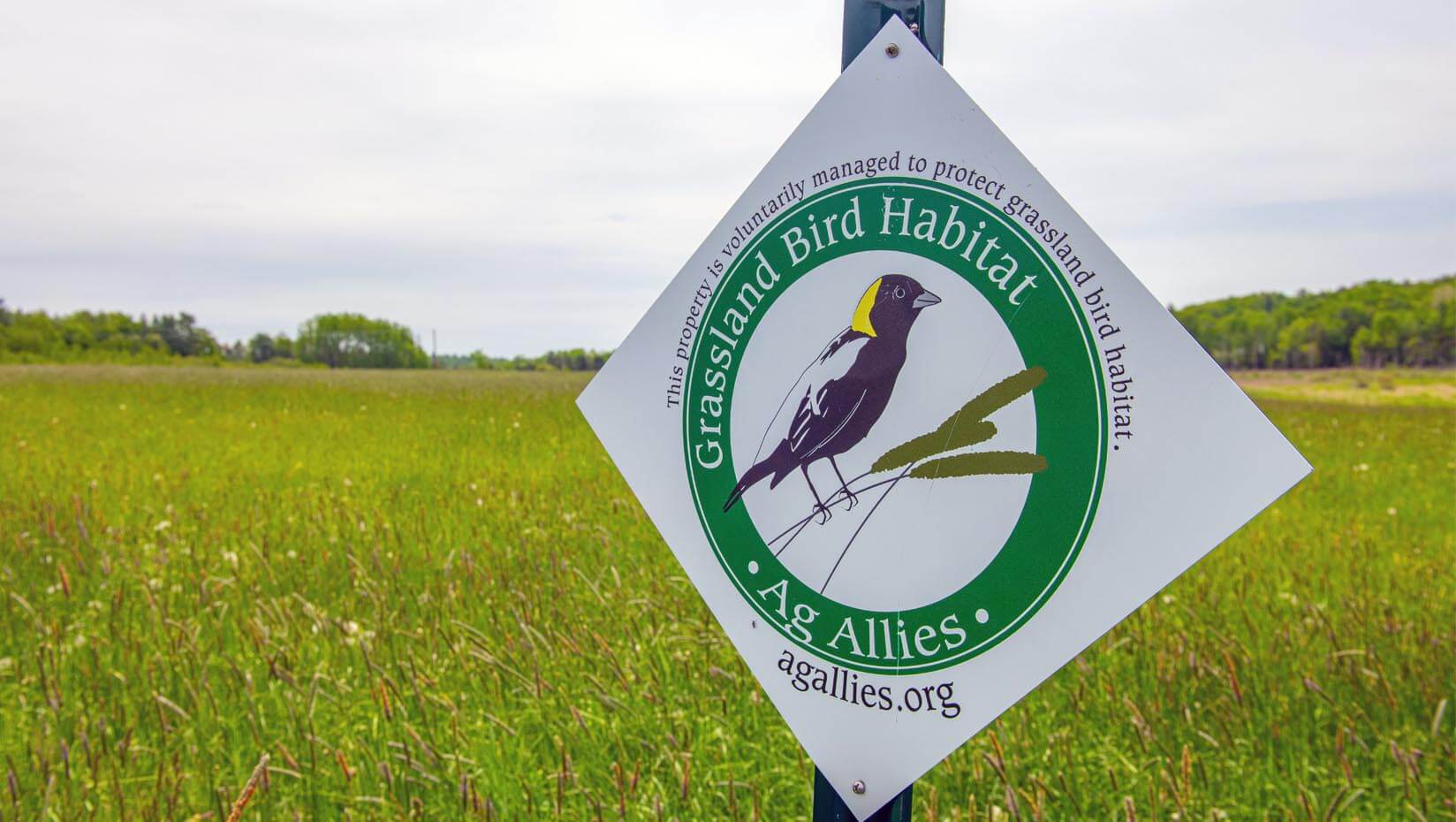
New partnership balances bird habitat with farming at UMaine
As summer wraps Maine in its warm embrace, stroll onto a meadow and listen. Amid the rustling breeze and hum of insects you may be greeted by the robotic tittering of the bobolink.
The sparrow-sized relative of blackbirds migrates as much as 12,500 miles from its winter range in South America to nest among forbs, grasses, and rushes in large forest openings throughout New England.
Recent habitat loss due to development, climate change, and the intensification of farming, however, has caused the bird’s population to decline by as much as 3% a year in Maine.
A new partnership between the Ag Allies Grassland Bird Project and University of Maine’s J. Franklin Witter Teaching and Research Center will protect 13 acres of the bird’s habitat this nesting season. The meadow, which is intersected with walking trails that lead from campus to the University Forests, is managed for livestock forage.
“Farmers carefully time their cuttings to optimize the nutrient composition and bulk of the feed. Depending on the weather, we would normally take our first cutting here in June,” says Joshua Hatley, farm superintendent at the Witter Center. That timing spells trouble for bobolinks, who nest on the ground under the canopy of mixed meadow grasses.
The new partnership requires the center to delay harvest until the 2021 crop of bobolinks take flight and settle into nearby wetlands — likely in early July. The Ag Allies project provides an incentive payment to offset the cost of adjustments the center will make to account for the loss of forage quality. This helps balance the tradeoffs of grassland bird habitat protection with sustaining Maine’s farms.
“Agricultural lands are their habitat, and so we work with farmers to support them,” said Laura Suomi-Lecker, program manager of the project.
As development pressure builds in many regions of our state, the alternative to farming is often development, which would permanently eliminate habitat for the birds. Lecker has found that other grassland bird species benefit from the adjustments in management as well.
Any landowner who has bobolink habitat on their property in Maine is eligible to participate in the program. To learn more, visit the Ag Allies website.
The J. Franklin Witter Teaching and Research Center in Old Town is the home to the University of Maine’s teaching and research programs in animal sciences and sustainable agriculture.
Contact: laura.lecker@me.nacdnet.net or joshua.hatley@maine.edu
